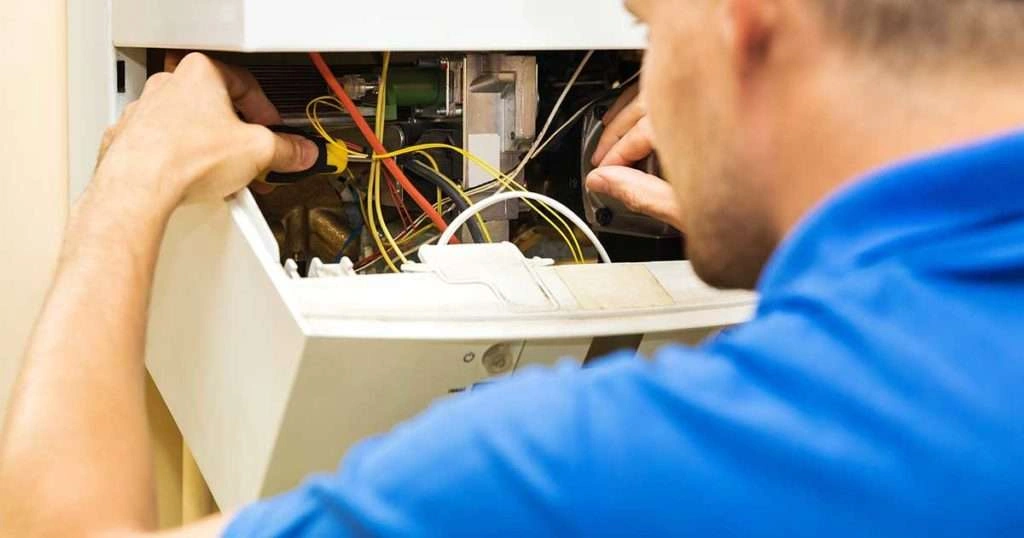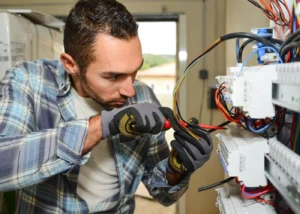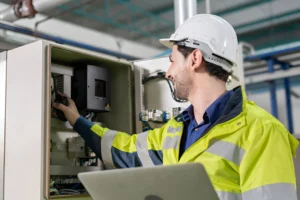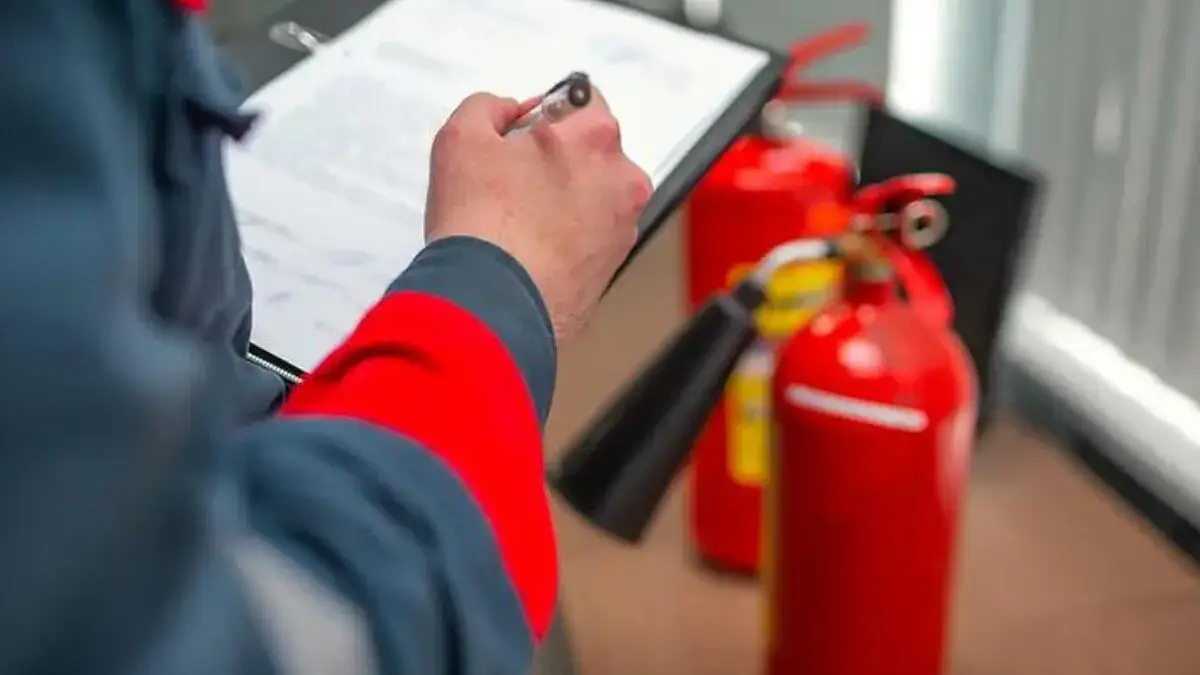If you’re a landlord, property manager, or homeowner in London, understanding the EICR Certificate Cost in London is essential for budgeting your property maintenance and ensuring electrical safety compliance. An Electrical Installation Condition Report (EICR) isn’t just a regulatory checkbox—it’s a comprehensive assessment that protects your tenants, validates your insurance, and confirms your property meets modern electrical safety standards.
The cost of an EICR test in London can vary significantly depending on multiple factors, from property size and wiring condition to location and the complexity of electrical systems. In this guide, we’ll break down everything that influences the EICR Cost in London, help you understand what you’re paying for, and explain why investing in a professional EICR Certificate London inspection is crucial for legal compliance and tenant safety.
Whether you’re managing a studio flat in East London or a multi-unit commercial building in West London, knowing what affects pricing helps you make informed decisions and avoid unexpected costs.
What Is an EICR Certificate and Why It’s Important
An Electrical Installation Condition Report (EICR) is a detailed inspection and testing document that evaluates the safety and condition of a property’s electrical installations. Conducted by qualified electricians, typically certified by NICEIC or NAPIT, an EICR identifies potential electrical hazards, checks compliance with BS 7671 wiring regulations, and provides a safety classification for your electrical system.
Why EICRs Are Essential:
Since June 2020, EICR certificates have been a legal requirement for all private rental properties in England under the Electrical Safety Standards in the Private Rented Sector (England) Regulations 2020. Landlords must ensure their properties have a valid EICR before new tenancies begin and renew inspections every five years (or every 12 months for Houses in Multiple Occupation).
Beyond legal compliance, EICRs serve several critical purposes:
- Tenant Safety – Identifies dangerous wiring, overloaded circuits, and faulty electrical equipment that could cause fires or electric shocks
- Insurance Requirements – Many insurance providers require valid EICR certificates as a condition of coverage
- Property Value Protection – Demonstrates responsible property management and can prevent costly emergency repairs
- Legal Protection – Provides documented evidence of electrical safety due diligence
The inspection process involves visual examinations and hands-on testing of circuits, sockets, switches, consumer units, earthing systems, and bonding. Your electrician will issue a report classifying any defects as C1 (danger present), C2 (potentially dangerous), C3 (improvement recommended), or FI (further investigation required).
Professional EICR testing services ensure your property receives a thorough evaluation by certified engineers who understand London’s diverse property portfolio and the specific electrical challenges common in everything from Victorian conversions to modern developments.
What Factors Affect the EICR Certificate Cost in London?
The EICR Test Cost in London isn’t one-size-fits-all. Several key factors influence pricing, and understanding these variables helps you anticipate costs and budget appropriately for electrical safety compliance.
Property Size and Number of Circuits
The most significant factor affecting Electrical Installation Condition Report Cost is property size. Electricians typically price EICR inspections based on the number of circuits they need to test, which correlates directly with property size and complexity.
- Studio/1-Bed Flats – Usually have 6-10 circuits covering lighting, sockets, cooker, and immersion heater
- 2-3 Bed Houses – Typically contain 10-15 circuits with separate zones for upstairs/downstairs
- 4+ Bed Properties – May have 15-20+ circuits including outbuildings, garages, and multiple consumer units
- HMOs and Multi-Unit Buildings – Require testing of communal areas plus individual units, significantly increasing inspection time
Each circuit requires individual testing for continuity, insulation resistance, earth fault loop impedance, and polarity. More circuits mean more testing time, which directly impacts the overall cost.
Age and Condition of Electrical Installations
Older properties with outdated wiring systems require more thorough inspection and testing, which affects EICR Cost in London:
Pre-1960s Properties: Buildings with original wiring may still have cloth-insulated cables, rubber-sheathed wiring, or outdated fuse boxes. These systems require extremely careful testing and often reveal multiple defects requiring remedial work.
1960s-1990s Properties: May contain PVC-insulated cables but could have insufficient earthing, lack of RCD protection, or inadequate bonding. Electricians need additional time to assess compliance gaps.
Modern Properties (Post-2000s): Typically feature up-to-date consumer units with RCD protection and comply with more recent wiring regulations, making inspections faster and more straightforward.
If your property hasn’t been inspected in decades, expect the electrician to spend additional time investigating potential issues, which influences the final cost.
Type of Consumer Unit and Protection Devices
The complexity of your consumer unit (fuse box) affects inspection duration:
- Modern Consumer Units with RCDs – Quicker to test with clear circuit identification
- Old Fuse Boxes with Rewirable Fuses – Require more time and careful assessment
- Multiple Consumer Units – Properties with sub-boards or separate consumer units for annexes/garages increase testing requirements
- Three-Phase Supply – Commercial properties or large residential buildings with three-phase electrical systems need specialized testing
Electricians must verify that all protection devices function correctly and provide adequate safeguarding against electrical faults.
Property Accessibility and Layout
Physical access to electrical installations impacts EICR inspection London costs:
- Easy Access – Clear access to consumer units, readily accessible sockets and switches allow for efficient testing
- Limited Access – Properties with restricted access to consumer units (in locked cupboards, high ceilings, or behind furniture) require additional time
- Tenant Coordination – Occupied properties where electricians must work around tenant schedules may incur additional charges
- Multiple Floors – Testing properties across several floors, especially without lifts, increases inspection time
Properties in North London and South London with period features like basement electrical panels or loft-converted rooms may require extra time to access all circuits safely.
Domestic vs. Commercial Property Type
Domestic EICR Cost and Commercial EICR Cost London differ significantly due to inspection complexity:
Residential Properties: Standard domestic inspections follow straightforward procedures suitable for household electrical systems. Testing focuses on lighting circuits, socket outlets, cookers, immersion heaters, and basic safety devices.
Commercial Properties: Require more comprehensive testing including three-phase supplies, emergency lighting systems, fire alarm circuits, data cabling infrastructure, and specialist equipment. Commercial EICRs often cost 2-3 times more than comparable-sized residential inspections due to increased complexity and regulatory requirements.
For landlords managing mixed portfolios across Greater London, understanding these distinctions helps with accurate budgeting for EICR certificate pricing.
Location Within London
Geographic location can influence pricing, though variations are typically modest:
- Central London – Higher operational costs may result in slightly elevated pricing
- Outer London Areas – Generally offer more competitive rates while maintaining quality standards
- Travel Time – Properties in less accessible areas may incur additional call-out charges
Reputable providers like Landlord Certification offer consistent pricing across West London, East London, and throughout Greater London to ensure fair, transparent costs regardless of postcode.
Certification Body and Electrician Qualifications
NICEIC EICR testing and inspections by NAPIT-registered electricians represent industry gold standards. While certified electricians may charge slightly more than non-registered individuals, their qualifications ensure:
- Recognition by local authorities and letting agents
- Compliance with insurance requirements
- Acceptance by mortgage lenders
- Protection under professional indemnity insurance
- Up-to-date knowledge of current wiring regulations
Choosing appropriately qualified professionals prevents rejection of certificates and ensures your Landlord EICR certificate meets all legal requirements.
Domestic vs. Commercial EICR Costs
Understanding the distinction between residential and commercial electrical inspections helps landlords and property managers budget appropriately for their portfolios.
Domestic EICR Inspections
Domestic EICR cost covers standard residential properties including flats, houses, and HMOs. These inspections typically take 2-4 hours depending on property size and involve testing:
- Lighting circuits throughout the property
- Socket outlets in all rooms
- Fixed appliances (cookers, immersion heaters, electric showers)
- Consumer unit and protection devices
- Earthing and bonding arrangements
- Smoke alarm circuits (where hard-wired)
Landlords managing rental properties in London should expect inspections to identify common issues in older buildings, such as inadequate earthing, missing RCD protection, or deteriorated cable insulation. The report will classify any defects and specify remedial work required before the property can pass inspection.
For Houses in Multiple Occupation, domestic EICR costs increase proportionally due to additional circuits serving communal areas, multiple kitchens, and enhanced safety requirements mandated by HMO licensing standards.
Commercial EICR Inspections
Commercial EICR Cost London reflects the increased complexity of business premises electrical systems. Commercial inspections can take a full day or longer and cover:
- Three-phase electrical supplies and distribution boards
- Emergency lighting systems and testing
- Fire alarm circuits and integration
- Specialist equipment circuits (server rooms, HVAC systems)
- External lighting and security systems
- Commercial kitchen equipment
- Compliance with workplace safety regulations
Shops, offices, restaurants, and industrial units require more comprehensive documentation and must meet stricter safety standards due to higher occupancy levels and public access. Commercial EICRs also require detailed schematic drawings and may need coordinated testing outside business hours to avoid operational disruption.
Business owners in London should budget significantly more for commercial inspections compared to residential properties of similar size, but this investment ensures electrical safety compliance London and protects against workplace accidents and business interruption.
How Often Should You Renew an EICR Certificate?
Understanding renewal requirements helps landlords plan maintenance schedules and budget for recurring electrical safety costs.
Standard Renewal Periods
Private Residential Lettings: The Electrical Safety Standards in the Private Rented Sector Regulations 2020 require landlords to obtain an EICR every five years or at the start of each new tenancy if five years have elapsed since the last inspection.
Houses in Multiple Occupation (HMOs): HMO properties require more frequent electrical inspections, typically every 12 months, due to higher occupancy levels and increased electrical demand from multiple tenants.
Commercial Properties: Business premises should obtain EICR certificates every three to five years depending on the type of business, electrical system complexity, and insurance requirements. High-risk environments like factories or kitchens may need annual inspections.
Owner-Occupied Properties: While not legally required for homeowners, electrical safety best practice recommends EICR inspections every 10 years for owner-occupied homes and before purchasing older properties.
When to Schedule Earlier Inspections
Beyond standard renewal periods, consider scheduling an earlier EICR Certificate London inspection if:
- Major electrical work or rewiring has been completed
- You’re experiencing frequent circuit breaker trips or electrical faults
- You notice burning smells, sparking sockets, or flickering lights
- The property has been empty for extended periods
- You’re planning significant renovations
- Insurance providers request updated certification
Proactive EICR renewal services prevent emergency situations and ensure continuous compliance with rental regulations. Many landlords schedule inspections 4-6 weeks before expiry to allow time for any necessary remedial work without lapsing certification.
Setting calendar reminders for renewal dates helps maintain an organized compliance schedule, especially for landlords managing multiple properties across London with staggered inspection dates.
Why Choose Certified Engineers for Your EICR Inspection
The qualifications and expertise of your electrical inspector directly impact the quality, validity, and acceptance of your EICR certificate.
Professional Certification Standards
NICEIC Registration: The National Inspection Council for Electrical Installation Contracting (NICEIC) represents the UK’s leading certification body for electrical contractors. NICEIC-registered electricians undergo regular assessment and maintain current knowledge of BS 7671 wiring regulations. Their EICRs are recognized by local authorities, insurance companies, and mortgage lenders nationwide.
NAPIT Registration: The National Association of Professional Inspectors and Testers provides equivalent certification to NICEIC. NAPIT-registered electricians meet the same rigorous standards and their certificates carry identical legal weight.
City & Guilds Qualifications: Look for electricians with Level 3 qualifications in Electrical Installation or Inspection and Testing. These qualifications demonstrate comprehensive technical knowledge and practical competency.
Why Certification Matters
Using certified professionals for your EICR testing London requirements ensures:
Legal Compliance: Local authority enforcement officers and letting agents only accept EICRs from appropriately qualified electricians. Certificates from unregistered individuals may be rejected, leaving you non-compliant and potentially facing penalties.
Insurance Validity: Many insurance policies specifically require electrical inspections by NICEIC or NAPIT-registered engineers. Using uncertified electricians could void your coverage.
Quality Assurance: Certified engineers carry professional indemnity insurance and subscribe to independent complaint resolution schemes. If issues arise, you have recourse through official channels.
Technical Expertise: Registered electricians remain current with evolving regulations and understand the specific challenges of London’s diverse property stock, from Victorian terraces to modern apartment blocks.
Comprehensive Testing: Professional electricians use calibrated testing equipment and follow standardized procedures ensuring thorough evaluation of all electrical installations.
Choosing the Right EICR Provider
When selecting an electrical inspection service, verify:
- Current NICEIC or NAPIT registration (check online registers)
- Public liability and professional indemnity insurance
- Experience with your property type (residential, HMO, commercial)
- Transparent pricing without hidden charges
- Same-day or next-day availability
- Digital certificate issuance within 24-48 hours
- Clear explanation of any defects identified
- Ability to carry out remedial work if required
Landlord Certification provides fully certified EICR inspection London services with experienced engineers covering all London boroughs. Our electricians conduct thorough testing, provide detailed reports with photographic evidence, and offer clear guidance on any remedial work required to achieve compliance.
Understanding Your EICR Report
Once your inspection is complete, you’ll receive a comprehensive report documenting the condition of your electrical installations. Understanding this report helps you prioritize any necessary remedial work and maintain electrical safety compliance.
EICR Classification Codes
Electricians classify observed defects using standardized codes:
C1 – Danger Present: Immediate hazard requiring urgent remedial action. The electrical installation is unsafe and poses immediate risk of injury or fire. Properties with C1 defects fail the EICR and require immediate correction before tenants can safely occupy.
C2 – Potentially Dangerous: Defects that don’t pose immediate danger but could become hazardous under fault conditions. C2 defects must be addressed within 28 days. Properties with C2 classifications receive an “unsatisfactory” EICR result.
C3 – Improvement Recommended: Issues that don’t meet current standards but aren’t immediately dangerous. While not preventing EICR pass status, addressing C3 recommendations improves overall safety and future-proofs your installation.
FI – Further Investigation Required: Limitations encountered during inspection that prevented complete testing. These areas need additional investigation to determine safety status.
Satisfactory vs. Unsatisfactory Results
Your EICR will conclude with an overall assessment:
Satisfactory: Electrical installations are safe, properly maintained, and suitable for continued service. Properties with only C3 recommendations (or no defects) receive satisfactory certification valid for the standard renewal period.
Unsatisfactory: Properties with C1 or C2 defects require remedial work before achieving compliance. Your electrician will detail specific corrections needed and can provide quotations for necessary repairs.
For landlords, an unsatisfactory result means you cannot let the property until defects are corrected and a satisfactory EICR is obtained. Budget for both the initial inspection cost and potential remedial work when planning your Electrical Safety Certificate Cost.
Get a Reliable EICR Certificate in London Today
Maintaining valid electrical safety certification protects your tenants, preserves your property value, and ensures legal compliance across your London rental portfolio. Understanding what influences EICR Certificate Cost London helps you budget appropriately and choose quality inspection services that deliver thorough, compliant assessments.
Whether you manage a single flat in North London or a commercial portfolio across Greater London, investing in professional NICEIC EICR testing provides peace of mind that your electrical installations meet modern safety standards.
At Landlord Certification, we provide transparent, fixed-price EICR inspections throughout London with same-day availability and digital certificates issued within 24 hours. Our NICEIC-registered engineers conduct comprehensive testing, provide detailed reports with photographic evidence, and offer competitive pricing across all property types.
Don’t risk tenant safety, insurance complications, or regulatory penalties with expired or inadequate electrical certification. Book your EICR inspection today and ensure your property meets all legal requirements.
Ready to schedule your electrical safety inspection?
📞 Call us for same-day quotes and flexible appointment times
💻 Book online for instant scheduling across all London areas
📧 Email us with your property details for personalized pricing
Our team understands the pressures landlords face and works efficiently around tenant schedules to minimize disruption. We provide clear, jargon-free explanations of any issues identified and can complete most remedial work immediately, saving you time and additional call-out charges.
Get your EICR Certificate in London from certified professionals who prioritize quality, compliance, and customer service. Join hundreds of satisfied landlords across London who trust Landlord Certification for comprehensive electrical safety inspections that protect tenants and property investments alike.
Final Thoughts
The cost of an EICR certificate in London reflects the expertise, time, and equipment required to thoroughly assess your property’s electrical safety. While prices vary based on property size, age, and complexity, investing in professional inspection services provides invaluable protection against electrical hazards, ensures legal compliance, and maintains insurance validity.
By choosing qualified, certified electricians and understanding the factors that influence pricing, you can make informed decisions that prioritize safety without unnecessary expense. Regular EICR inspections aren’t just regulatory requirements—they’re essential investments in tenant welfare and responsible property management.






